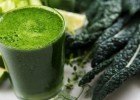Ayurveda is not just only about treating diseases. Ayurveda is just about leading a healthy life in a physical, mental and divine level. The food items we eat, the air we breathe, the freshness of nature we experience, the fragrance we smell, the good sights we enjoy, all have potential medicinal values.
This is best illustrated by the story of Jeevaka’s test. It is the final test assigned by Jeevaka’s Acharya (teacher) Athreya.Jeevaka (Jivaka), like other disciples of Atreya had to bring a herb or a leaf with no medicinal value. Jivaka, could not find such a plant or a herb. However, it was only a manifestation of superior knowledge he had on the value of plants, herbs and all elements of nature.
Ayurveda, Indian holistic medical system is based upon the universal natural law of balancing the five elements (ether, air, fire, water and earth) that make up the physical body. When one or more of these elements go out of balance diseases like Low back problems affect the spine’s flexibility and strength which causes pain.
Treatment of all liver diseases in Ayurveda concentrates on Pitta dosha rather than the organ itself. All liver diseases have imbalances of pitta and agni. Apart from this, ojus is also affected. As the liver is the basis of Pachaka Pitta, all diseases of the liver can be treated concomitantly by treating Pachaka Pitta.
The liver is also an organ of fire, All Bhuta-Agnis( fire): Nabhasa Agni, Vayavya Agni, Tejo Agni, Apo Agni, and Parthiva Agni are all situated here. These agnis and Ranchaka pitta originating in the liver serve to break down substances into their respective elemental factors akasham(space), vayu(air), thejus( fire), ap( water), and prithvi(earth ) and distribute them to the appropriate tissues (dhatus) in the body.
The balance between these doshas determines individual constitution (prakriti) and predisposition to disease. Constitution is also affected by the strength of a person’s ‘digestive fire’ (agni) and bowel function (kostha).Seven tissues (dhatus) and their waste products (malas) make up the physical body and a network of channels circulate fluids and essences around the body. Three interdependent universal constituents, the three gunas – purity (sattva), activity (rajas) and solidity (tamas) – also influence health and determine mental qualities.
Disease occurs if lifestyle, mental or external factors cause an imbalance in one or more of these components. Ayurvedic medicine treats the majority of its patients using herbal mixtures, other organic food and substances that have been clinically tested and are now being scientifically validated.
Ayurveda is based on the understanding that the universe is made up of five elements: air, fire, water, earth, and ether (space). These elements are represented in the human body by three “doshas,” or energies. They are Vata, Pitta, and Kapha, and are responsible for the characteristics of our mind and body. When any of the doshas accumulate in the body, or get out of balance, the body also loses its balance. Each individual has a distinct proportion of these three forces that shapes their nature, health, and well-being. In Ayurveda, each individual is considered one-of-a-kind, with a unique blueprint for health. Whenever the doshas become imbalanced, Ayurveda suggests specific lifestyle and nutritional guidelines to assist the individual in reducing the dosha that has become excessive. Herbal medicines are also suggested.




